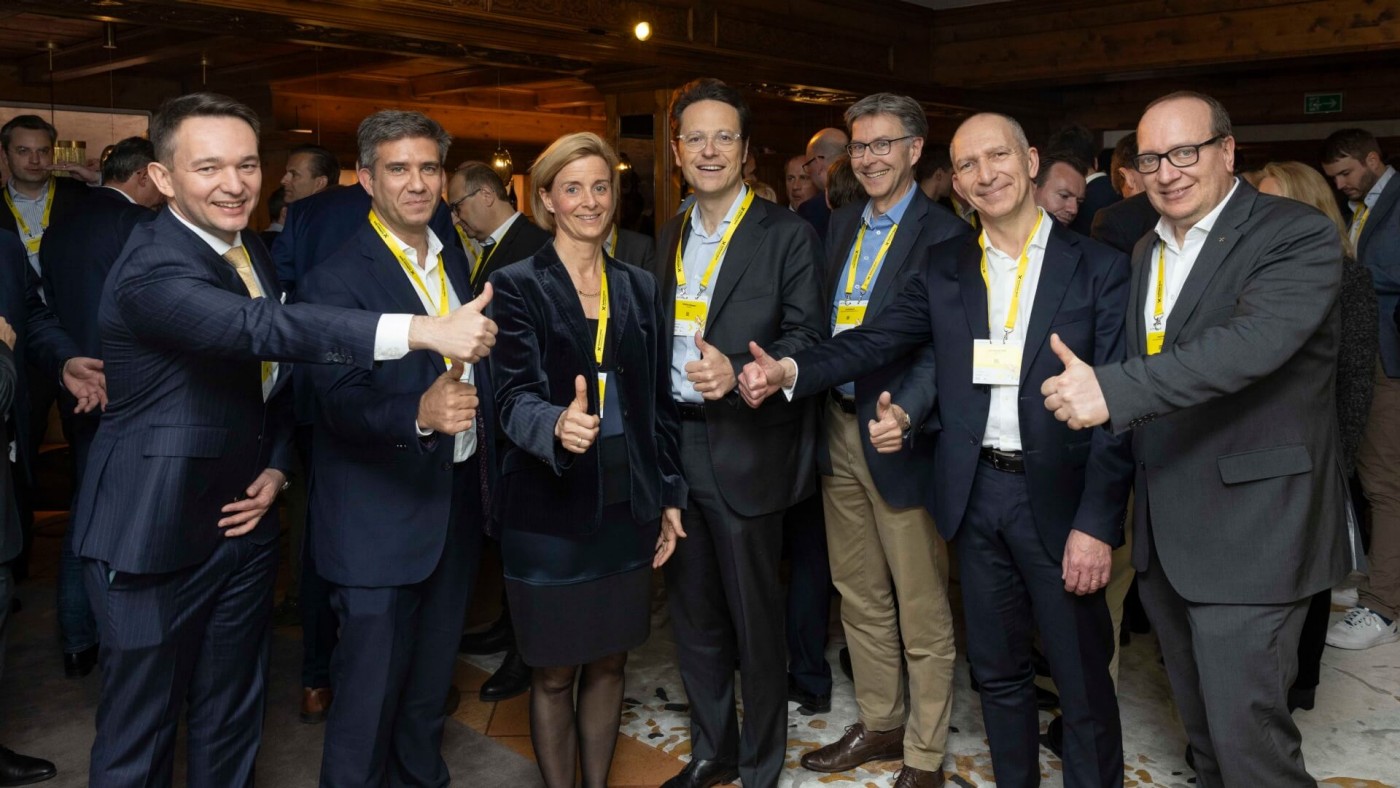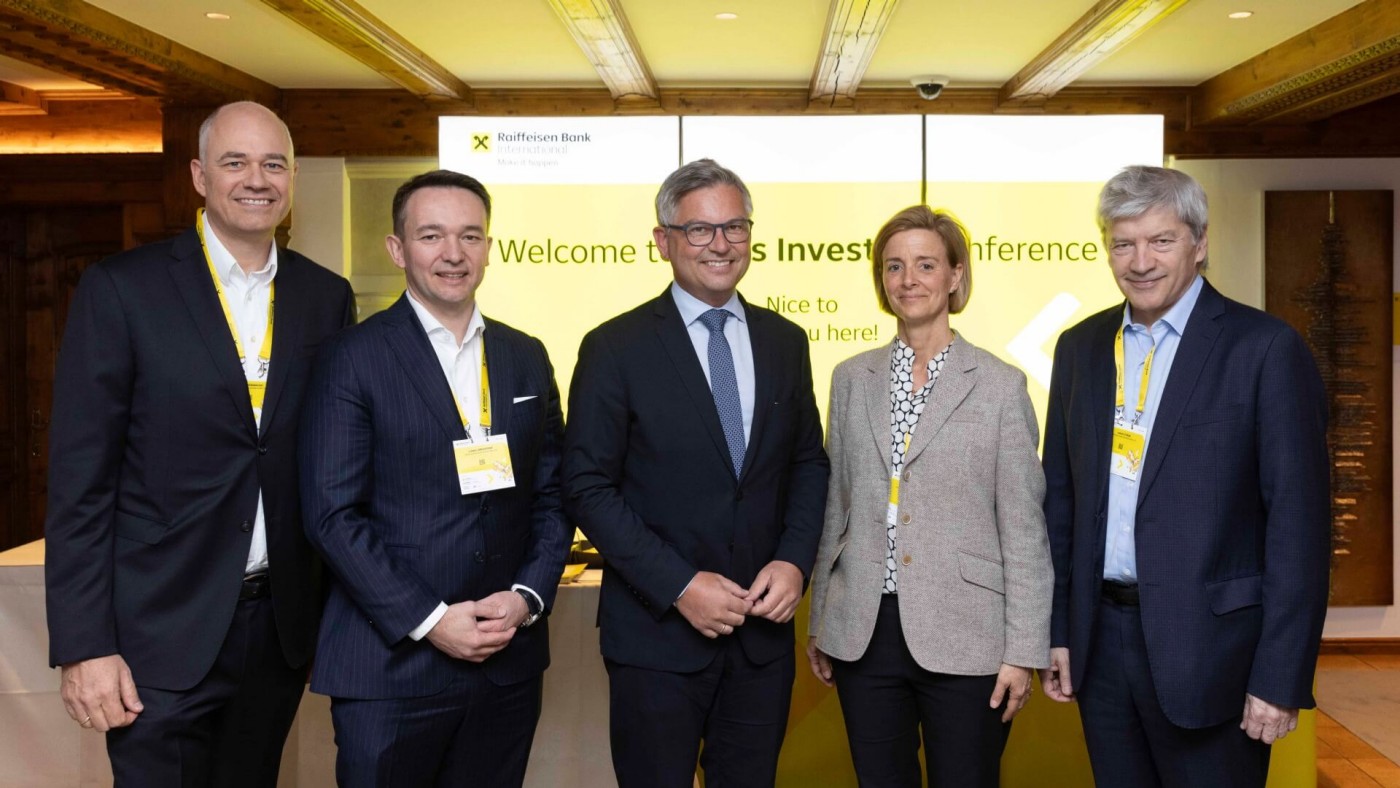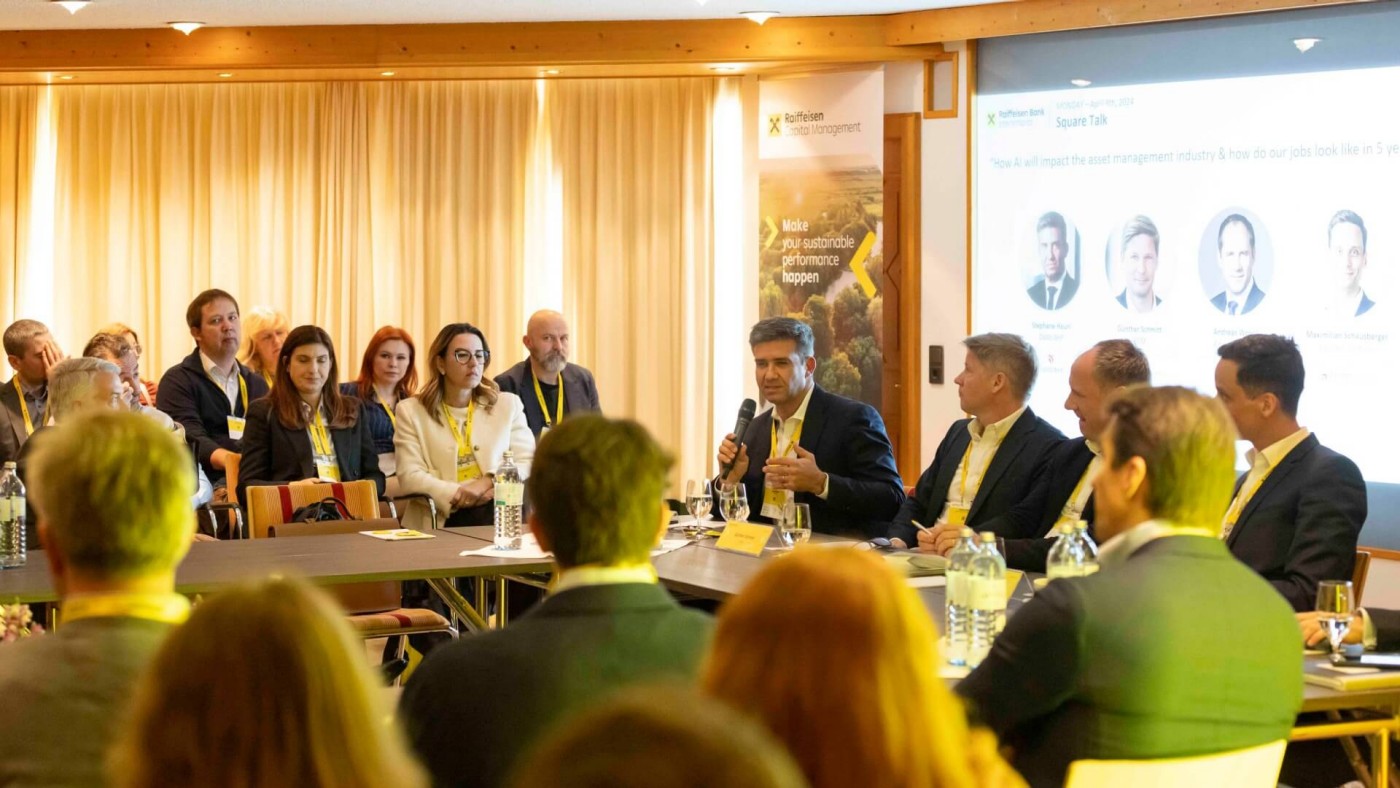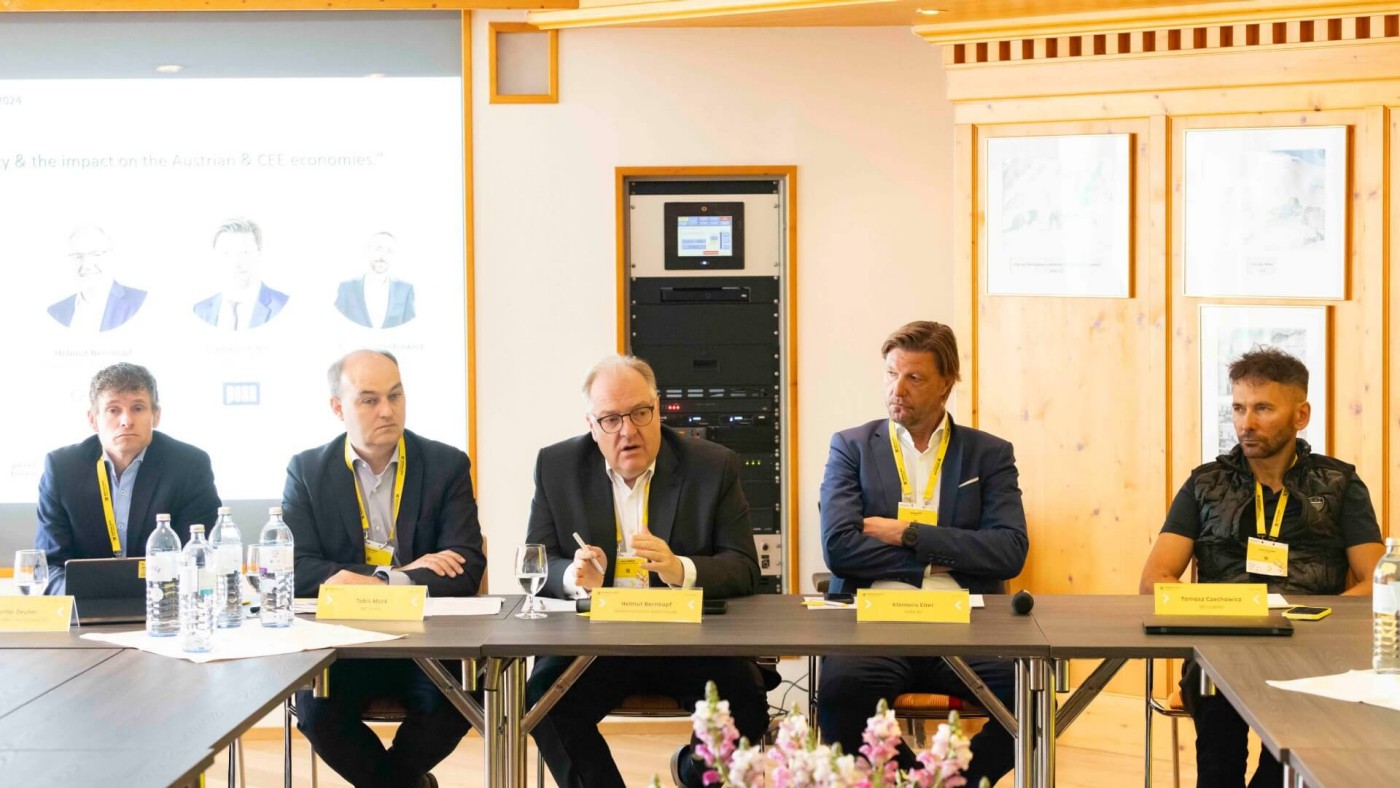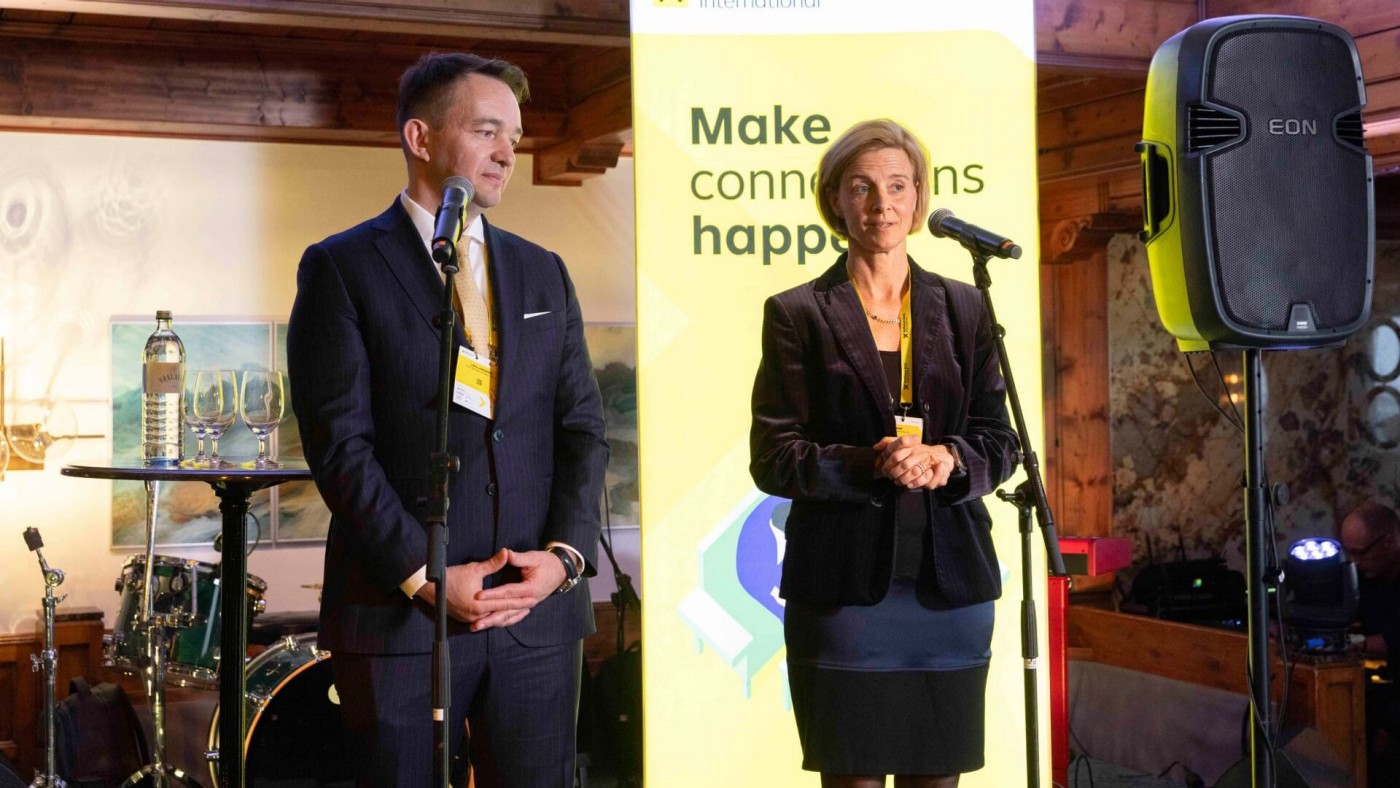
RBI’s Investor Conference in Zürs 2024
Insights on AI, business models, and geopolitics at Zürs 2024 Investor Conference!
The Zürs 2024 Investor Conference, organized by RBI, recently concluded with resounding success. The three-day event featured high-level discussions and around 1,200 meetings between listed and non-listed companies and institutional investors. Notable presentations included a keynote speech by Austria's Federal Minister of Finance Magnus Brunner and speeches by Raiffeisen Bank International AG CEO Johann Strobl, RBI Board Members Valerie Brunner and Lukasz Januszewski.
Enjoy a video recap of the conference here:
Exploring AI’s Impact on Business Models
The Zürs Investor Conference shed light on the impact of AI on corporate business models and the asset management industry. Two panel discussions at the conference delved into the topic of AI.
During “How AI will impact the asset management industry & how do our jobs look like in 5 years?” panelists Stephane Houri (Head of Equity Research, Oddo BHF), Günther Schmitt (Head of Equities, Developed Markets, RCM), Andreas Wosol (Head of Value, Amundi Austria), and Maximilian Schausberger (Managing Director, Elevator Ventures), noted that AI applications are increasingly being employed, both on the buy and the sell side. They added that they do not envisage the peril that fund managers and analysts are being replaced. The main advantages are identified in the fields of processing large amounts of data and becoming more cost effective.
In the second panel discussion, titled "How AI is impacting corporate business models," panelists Helmut Sorger (CFO, Semperit AG), Kurt Svoboda (CFRO, Uniqa Insurance Group), Walter Oblin (CFO, Österreichische Post AG), Jacek Dziaduś (CFO, Answear.com), and Tomasz Czechowicz (Managing Partner & Founder, MCI Capital) agreed that when implementing AI tools, AI should be viewed as a core element within a broader technology spectrum. There are high hopes for efficiency gains and cost rationalization, although it was also noted that the customer experience must not be compromised. At this stage, it appears that use cases are mostly cost-centric, with additional business wins seen as a function of a more efficient cost structure rather than outright new business models. It was emphasized that the protection of (personal) data must be ensured.
The new geopolitical reality & the impact on the Austrian & CEE economies
The conference also featured a panel discussion on the impact of current geopolitical events on Austria and CEE, exploring how these events are affecting business in the region and how companies are responding. The panel included Helmut Bernkopf (Member of the Board, OeKB), Tomasz Czechowicz (CEO, MCI Capital), Klemens Eiter (CFO, Porr AG), Tobias Mock (Country Head Germany, S&P Global) and Gunter Deuber (Head of Raiffeisen Research), who described an expected long period of geopolitical/geoeconomic realignment of at least 10 years before a new equilibrium could be reached. Key challenges identified by the panelists included protecting the competitiveness of the region's production facilities in the face of rising labor costs, continued dependence on Russian gas supplies in some countries, supply chain risks associated with military activities, e.g. in the Red Sea, and potential steel capacity shortages/price increases in the face of increased defense spending and the reconstruction of Ukraine. However, the positive effects of increased nearshoring (e.g. Poland), the low probability of an escalation of the Taiwan conflict, and muted fears of a new term of Donald Trump were also discussed with participating investors.
In addition to the strongly business-focused topics, there was also plenty of time to network and have a good time at lunches, dinners, and Raiffeisen in Concert.
Have fun clicking your way through our photo gallery:
Related News
Be the first
Subscribe to Raiffeisen Insights. Get an email with
the latest trends in the world of economics and business.
